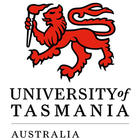Bachelor of Justice Studies
Bachelor of Justice Studies
In Tasmania, we have a long history of fighting for those who need a voice. The Bachelor of Justice Studies is built on the social and environmental justice issues in our state. This course will challenge you to explore and question justice issues affecting the places where you live, work,…
Categories
COURSE DESCRIPTION
In Tasmania, we have a long history of fighting for those who need a voice. The Bachelor of Justice Studies is built on the social and environmental justice issues in our state. This course will challenge you to explore and question justice issues affecting the places where you live, work, play and study.
Turn your passion into action with research-led learning experiences across different justice scenarios. We will support you to interrogate a range of complex justice issues including domestic and international crime, domestic violence, international terror, humanitarian crises, climate change, and species extinction. You’ll also gain deeper insights and connection to wider regional, national, and international concerns.
Throughout your degree you will have opportunities to design an elective program that suits your interests and career aspirations. Elective units can be selected from a wide range of options across the university. You can study electives to complete a second major or broaden your degree across business, creative arts or languages. Many students choose to study electives in complementary fields such as sustainability, environmental science, law, criminology and politics.
A ‘Justice Practitioner’ holds a diverse range of important skills in criminology, human rights, corrective services, forensic studies, sociology, international relations, social justice, environmental justice, Indigenous issues, and humanitarian disaster management. Graduates of this degree will be prepared for work across inter-agency justice contexts as well as broader networked non-government and community support organisations.
Course objectives: Delivered by the School of Social Sciences, this course is developed within an applied framework that develops your real world problem solving capabilities which can be applied in local, national, and global employment opportunities. Prepare yourself for criminal and social justice workplaces by learning independently and collaboratively about the theoretical, ethical, and practical issues related to crime and justice.
Learning Outcomes
Communicate independently, by written, oral and technology supported modes, to demonstrate comprehension of the social, environmental, legal, ethical and political issues affecting justice policy and practice.
Demonstrate judgement and intellectual independence in identifying and solving problems, applying knowledge, analytical and technical skills as a basis for decision-making and planning across key justice issues locally, nationally and internationally.
Critically analyse, evaluate and synthesise complex factual scenarios and make evidence based, professional and ethical conclusions
Apply disciplinary knowledge and skills with flexibility and creativity to investigate justice issues, and to create new ways of understanding the world and addressing perceived injustice.
Career outcomes
Imagine working for an international organisation like the United Nations, Amnesty International, Australian Human Rights Commission, and Australian Red Cross, within the Police, Department of Justice or Correctional Services. In an environment where government and non-government organisations are now partnering together to overcome justice problems, as a graduate you will be prepared for a diverse choice of career options. You’ll graduate with skills to work in and across national government agencies, international government and non-government organisations, and the non-profit and community sectors.
Our graduates pursue employment in a wide range of occupations such as:
REQUIREMENTS
Admission to undergraduate courses at the University of Tasmania requires the completion of qualifications equivalent to a 12th year of education in Australia.
Most of our undergraduate programs have the following English language requirements.
IELTS (Academic) – 6.0 (no individual band less than 5.5)
TOEFL (iBT) 72 (no skill below: Reading 10; Listening 9; Speaking 16; Writing 19)
PTE Academic 50 with no score lower than 42
UTAS Access-English Level 6 – 60% (no individual score less than 55%)
Cambridge CAE (Certificate of Advanced English) – B Grade
Cambridge CPE (Certificate of Proficiency in English) – C Grade
Cambridge BEC (Business English Certificate) Higher – C Grade
EDUCATIONAL INSTITUTION
The University of Tasmania was officially founded on 1st January 1890 and is located at Sandy Bay, Tasmania. In addition to the main campus at Sandy Bay, it also operates out of the Newnham Campus and the Cradle Coast Campus. The most popular courses offered are the environmental studies that include wilderness management, marine sciences and indigenous studies in Tasmanian literature. Other unconventional courses include agriculture development, studies on the community and population and ocean study programs. The university also comprises of a Music Conservatorium, Art school and a School of Clinical studies.




